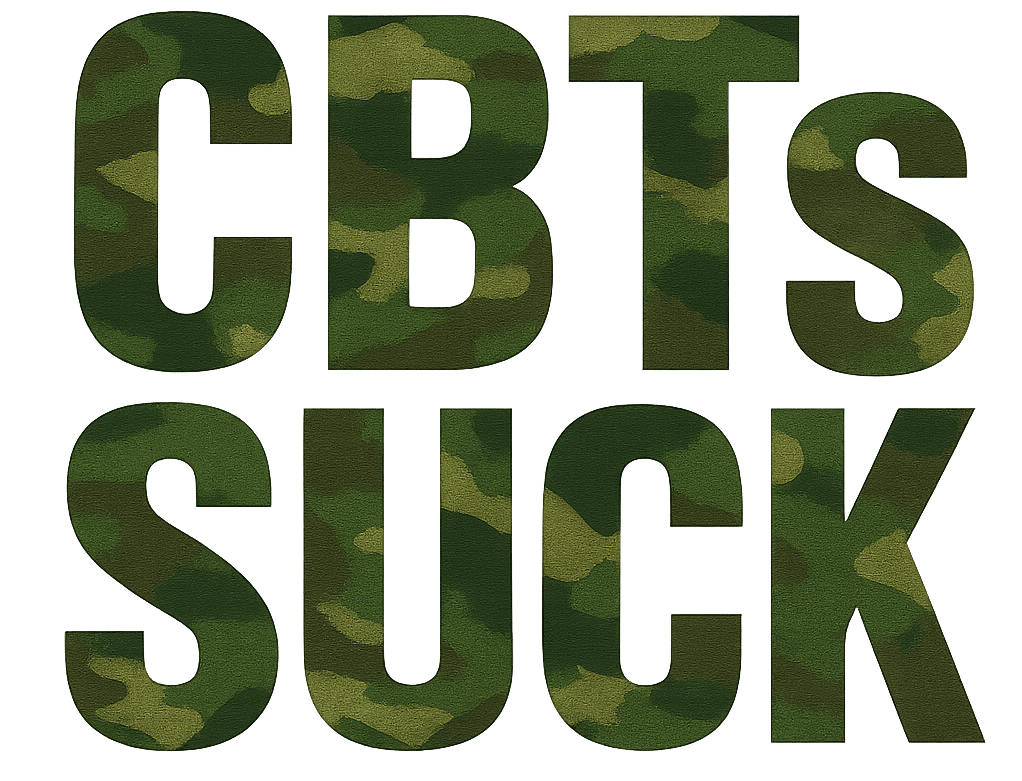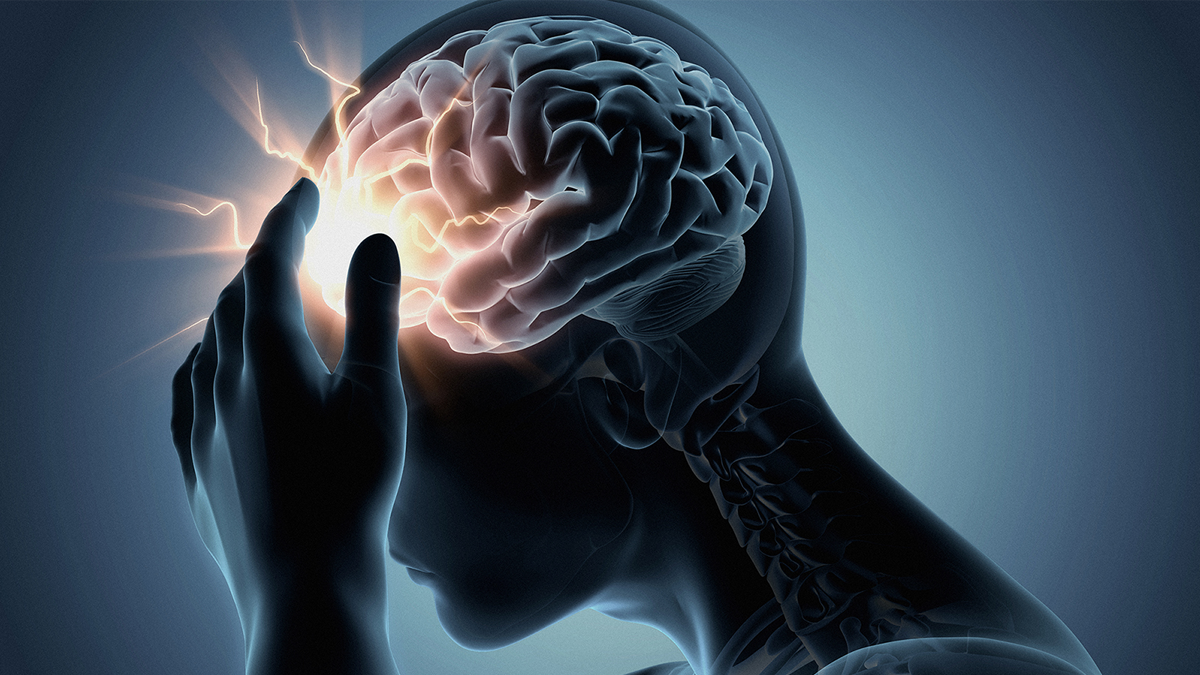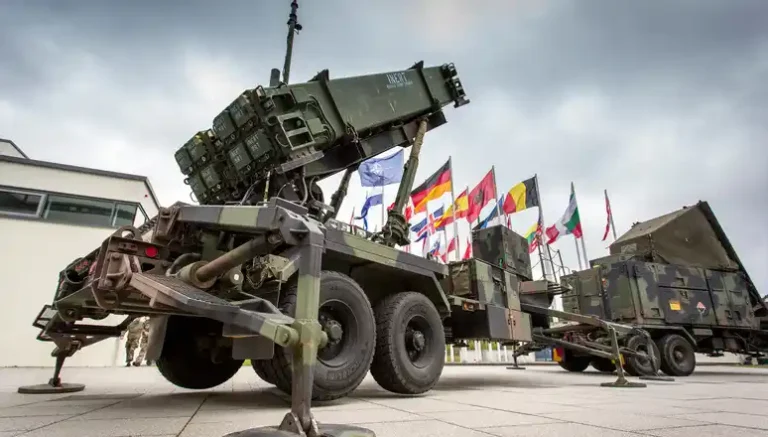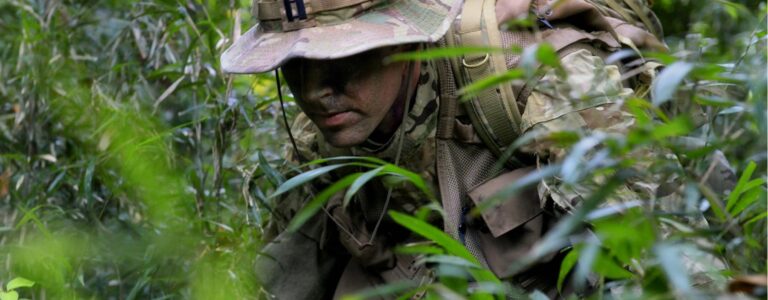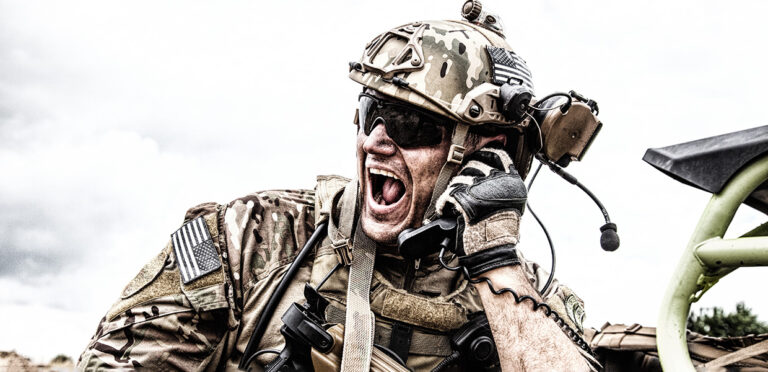Concussion Training for Service Members
Located in JKO
Knowledge Checks
Q: What is true about concussions?
A: With early diagnosis and treatment, most service members can return to duty quickly following a concussion.
Scenario: Sgt Jones is 40 meters away from an IED blast – Yes
Scenario: Seaman Lopez hit his head hard when running up the stairs – Yes
Scenario: After working out hard last night, Sgt. Baker woke up with a bad headache – No
Scenario: Lt. Davis was involved in a vehicle crash – Yes
Q: When can a concussion occur?
A: During an IED blast; during a car accident; from a collision or fall during a sporting event; hitting your head in an everyday situation; during a training exercise
Q: Which of the following are signs of concussion?
A: Slow to get up after a direct or indirect blow to the head; lying motionless on the ground; blank or vacant look; balance difficulties, stumbling, or slow labored movements; facial injury after head trauma; disorientation or confusion.
Q: In which way have you observed Corporal Pennington’s performance has been impacted by his concussion?
A: He is having difficulty concentrating and remembering things.
Q: Which of the following are symptoms of concussion?
A: Visual disturbances, dizziness, headache, irritability, balance problems, nausea/vomiting, memory problems, difficulty concentratig, ringing in the ears.
Q: What is NOT true about multiple concussions?
A: There is no need to follow up because you have had a concussion before.
Q: If the symptoms of concussion are not treated, they can impact your performance and the mission.
A: True
Practical Exercise: Sgt Gregg Callow – No
Practical Exercise: SSgt Jasmin Walters – Yes
Practical Exercise: PO2 Lauren Smith – No
Practical Exercise: CPL Nathan Pennington – Yes
Q: Which of the following describe the leader’s role in concussion identification and management?
A: Identifying Service Members who have been exposed to PCE; Referring Service Members for Medical Evaluation; reporting potentially concussive events; consulting with medical professionals
Q: when recovering from a concussion, there are some activities that support recovery, particularly during the first 24 hours and others that should be avoided.
A: Support: Maximizing downtime or rest during the day, getting at least eight hours of sleep, staying out of the heat, drinking plenty of water. Avoid: Drinking a beer before going to bed, Doing crossword puzzles to activate the brain, shooting baskets with a buddy.
Post-Test
Q: Which of the following are associated with sustaining multiple concussions?
A: You may experience more severe symptoms with multiple concussions; Recovery may take longer for a second or third concussion; You will be at greater risk of sustaining another concussion after the first concussion.
Q: Staff Sergeant Morrison hits his head hard on the tailgate of his truck while working in his driveway. He is evaluated and told he did not sustain a concussion. Why did he not sustain a concussion if he received a sharp blow to the head? Select the best answer.
A: Not all blows to the head result in a concussion.
Q: In which of the following ways can a concussion impact your performance?
A: You may make mistakes that you wouldn’t normally make; you may trip and fall more often; you may feel irritable.
Q: The DVBIC (TBI Center of Excellence) website is the best place to locate information and resources related to concussion.
A: True
Q: Airman Johnson collided with another Service Member during a hockey game. Airman Johnson was dignosed with a concussion. This is the second concussion that Airman Johnson has sustained in a year. He has been following medical recommendations three days and today he feels fine. He is anxious to return to duty because his unit is due to deploy in a month. When should Airman Johnson return to duty?
A: He should return to duty when his medical provider clears him to return to duty.
Q: What is true about concussions?
A: With early diagnosis and treatment, most Service Members can return to duty quickly following a concussion
Q: After being involved in an accident during a training event, Corporal Morales hit her head and was dazed and confused for a couple of seconds. Corporal Morales brushed off her injury and was reluctant to go to the medical center to get checked out. If Corporal Morales did not get checke3d out and had sustained a concussion, which of the following could happen?
A: Corporal Morales would be putting her unit and the mission in danger; Corporal Morales would be putting herself at risk for worsening or lingering concussion symptoms.
Q: Which of the following are signs that a person may have sustained a concussion?
A: Blank or vacant look; lying motionless on the ground; inability to respond appropriately to questions; slow labored movements
Q: Four airmen are involved in a football collision during downtime. they all received a blow to the head. Airman A and Airman B appear uninjured. However, Airman C hits the ground hard, quickly becoming dazed and confused. Airman D experiences some dizziness. Which of the airmen should receive a medical examination?
A: All of the airmen becuase they were all invovled in a potentially concussive event
Q: Petty Officer Nguyen slipped and hit her head on the floor while deployed. She was dazed and confused for 30 seconds. Which of the following are both the Service Member’s responsibilities and her leader’s
A: Get checked out for concussion; Consult with medical professionals about return to duty; Report the potentially concussive event to command team; recognize the potentially concussive event.
Q: Which of the following are common causes of concussion?
A: A direct blow to the head or the head striking an object; Vehicle crashes; Being near a blast; falls
Q: While on leave, Second Lieutenant Lee was involved in a head-to-head collision with another skier while enjoying downhill skiing in Colorado. Second Lieutenant Lee was evaluated for concussion but was not diagnosed with a concussion. Which of the following activities should Second Lieutenant Lee do during the next 24 hours?
A: Take it easy in case symptoms arise
Q: Which of the following are symptoms of concussion?
A: Dizziness; visual disturbances; ringing in the ears; balance difficulty; nausea/vomiting; difficulty concentrating; irritability
